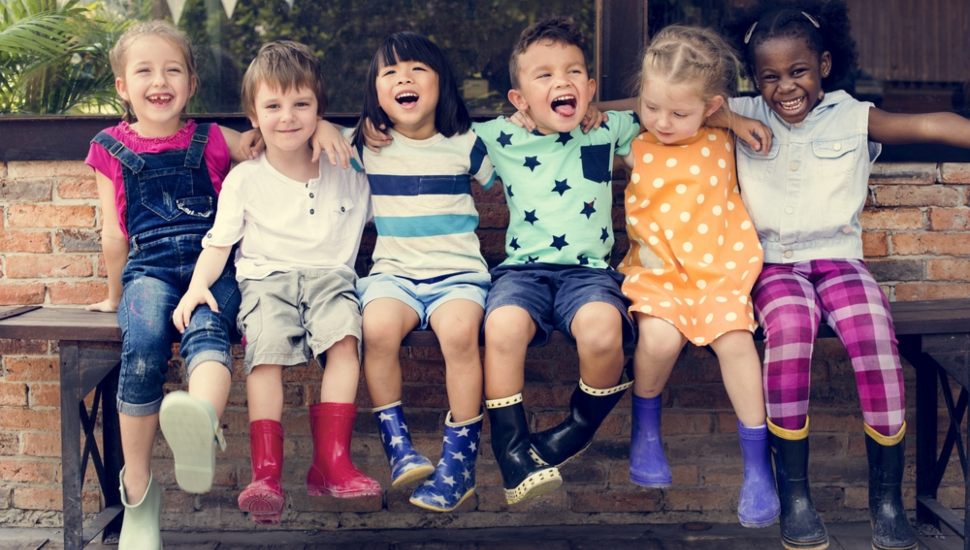Unlocking Children’s Happiness: The Impact of Supportive Relationships

The World Economic Forum published a summary of a 2020 UNICEF study that ranked children’s happiness by country based on mental well-being, physical health, and academic and social skills.
Some surprises emerged from the results.
European countries performed best overall, accounting for 18 of the top 20 spots. National wealth was not an indicator of child well-being—with countries having smaller economies like Slovenia (No. 9) and Croatia (No. 11) outranking wealthy countries like the UK (No. 27), Canada (No. 30), and the United States (No. 36).
Further, the results challenged assumptions we may have about what most contributes to kids feeling fulfilled and happy.
- Example 1: Balancing Health and Happiness in Japan: Illustrating the complexity of children’s well-being, Japan claimed the No. 1 spot for children’s physical health but lagged at No. 37 for mental well-being. A Kyodo News report on the findings expanded: “While Japanese children ranked first in physical health and live in relatively well-off economic circumstances, instances of bullying in schools as well as difficult relationships with family members leads to a lack of psychological well-being…. Japanese children ranked fifth in reading and mathematics proficiency, [but] were second from bottom when it came to confidence in making friends easily.” This example highlights how children can face social and emotional challenges despite good health and academic achievements.
- Example 2: The Dutch Recipe for Child Happiness: The Netherlands ranked No. 1 overall, taking the No. 1 position in mental well-being, No. 9 in physical health, and No. 3 in academic and social skills. This article by the Blue Zones (a research initiative studying why certain groups live longer and better) points to a more laid-back culture and home life as providing a more connected environment for children to grow and develop. Hagelslag—the go-to breakfast staple for Dutch kids could also be a factor. Who wouldn’t have a smile on their face with the prospect of eating buttered toast covered in chocolate sprinkles each morning? Of course, it’s far more likely that the relaxed cultural norms and the fact that Dutch families start their day by eating breakfast together more than in any other country are major contributors to Dutch kids’ strong sense of belonging and happiness.
A Deeper Dive Into Contributing Factors
Both of these examples emphasize that children’s well-being is influenced by factors deeper than mere markers like physical health and academic success. According to the UNICEF report, the most significant factor impacting children’s life satisfaction is the quality of their relationships within their family and their broader social environment.
Looking to the country that seems to have something figured out, Dr Simone de Roos of the Netherlands Institute for Social Research (SCP), says life satisfaction has been steadily high for a decade. “…Dutch children have generally positive interactions in all their social surroundings,” says De Roos. “They have a supportive environment at home, with friends, and …at school. Dutch parents give a lot of support and have mild control. There’s an egalitarian climate, teachers are not authoritarian but accept the feelings of pupils, and pupils trust teachers.”
Looking at the country that appears to have this figured out, Dr. Simone de Roos from the Netherlands Institute for Social Research (SCP) notes that life satisfaction among Dutch children has consistently been high for a decade. “…Dutch children have generally positive interactions in all their social surroundings,” says De Roos. “They have a supportive environment at home, with friends, and …at school. Dutch parents give a lot of support and have mild control. There’s an egalitarian climate, teachers are not authoritarian but accept the feelings of pupils, and pupils trust teachers.”
The Importance of Stable, Supportive Relationships
The world over, children need to see and experience stable, supportive, caring relationships to develop a healthy sense of self, and a clear concept of how they fit into their family, their community, and the world. Further, families need meaningful connections with other supportive families and individuals. These connections create a sense of belonging and help children grow up with a view of how their family fits into the greater community.
- Families and Beyond: Creating a Supportive Network: Even if they are not wealthy or well-educated. Children look to their families as their first and best teachers, and when their family relationships are strong, children are more confident, secure, and willing to take risks. In a strong family that cultivates an atmosphere of trust and safety, children also experience healthy intellectual, linguistic, emotional, and behavioral development.
- The Universal Path to Child Happiness: Ideally, this begins with intergenerational support from extended family. As one study described, “parents, grandparents, and children often provide care for each other at different points in the life course, which can … influence the health and well-being of each in important ways.” But families can also connect meaningfully outside their families. Neighbors, church and community groups, and friendships can make up the meaningful network of supportive relationships that families can create and support over a lifetime. The UNICEF report found when parents reported no family or friends they could count on for help with looking after their children, they had greater challenges to provide for their children and were more socially, emotionally, physically, and financially vulnerable in times of crisis. So disconnection also impacts children’s well-being.
The encouraging takeaway here is that a fulfilled life is attainable for every child when provided consistent love and care by their families and opportunities to build connections with peers and in their communities. Children around the world are enjoying life, and the biggest key to their well-being is the presence of healthy, supportive relationships.
The Lincoln Center for Family and Youth (TLC) is a social enterprise company serving the Greater Philadelphia Area. Among its five divisions, TLC offers School-based Staffing Solutions, Mobile Coaching and Counseling, and Heather’s Hope: A Center for Victims of Crime. These major programs are united under TLC’s mission to promote positive choices and cultivate meaningful connections through education, counseling, coaching, and consulting.
Find out more about The Lincoln Center.
MaryJo Burchard (Ph.D. in Organizational Leadership) is co-founder and principal of Concord Solutions, a Virginia-based consultancy firm focused on helping leaders and organizations thrive while facing major disruption. Concord Solutions offers consulting, coaching, training, research, and keynote speaking surrounding trauma-informed leadership and assessing and building change readiness, trust, and belonging.
Join Our Community
Never miss a Delaware County story!
"*" indicates required fields








![95000-1023_ACJ_BannerAd[1]](https://delco.today/wp-content/uploads/sites/3/2023/03/95000-1023_ACJ_BannerAd1.jpg)























